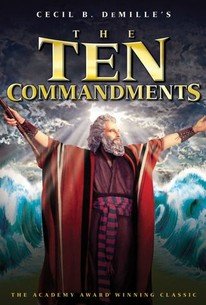
By India McCarty
AI companies are gaining ground almost everywhere — except for the entertainment industry. So, why can’t OpenAI win over Hollywood?
“Conversations have been happening for a while,” Rohan Sahai, who leads Sora’s product team, told the Los Angeles Times, explaining that there are many in Hollywood who are interested in using Sora, OpenAI’s new video-generation software.
The company recently held a showcase event to demonstrate how Sora can be used to make movies.
“I’m most excited for people to walk away with a sense of, ‘Oh my…These people are so creative. There’s so much that you can do with Sora,’” Souki Mansoor, Sora artist program lead for OpenAI, told the Los Angeles Times. “I hope that people go home and feel excited to play with it.”
However, according to a Fortune op-ed written by Matt Steinberg, a tech and public policy scholar at Georgetown University and former film and television development executive, no major movie studios agreed to work with OpenAI and Sora.
“[OpenAI] seems unwilling to prove it can work within the contracts, licensing agreements, and labor protections that have governed the entertainment business for more than a century,” Steinberg explained. “OpenAI isn’t just alienating the $100 billion-plus entertainment business — it is missing an opportunity to show other industries that it’s capable of building viable, long-term partnerships.”
Excited to share an op-ed I wrote for @FortuneMagazine about OpenAI’s recent attempt to partner with Hollywood — and what it reveals about the future of AI and creative industries!!https://t.co/qDHHfEPm3c
— Matt Steinberg (@MatthewSteinbrg) April 15, 2025
OpenAI’s practice of taking movies, TV shows, books and other pieces of media and using them to train its systems without permission of the creators has soured many creatives on the company.
Related: OpenAI Sued for Training AI System on Copyrighted Material
It’s clear that OpenAI’s efforts to partner up with Hollywood will be an uphill battle. Earlier this year, over 400 Hollywood creatives signed an open letter to the Trump administration, asking them to regulate the tech and uphold traditional copyright laws.
“We firmly believe that America’s global AI leadership must not come at the expense of our essential creative industries,” the letter, signed by big names like Ben Stiller, Paul McCartney, Ron Howard and Cate Blanchett, read.
The letter continued, “This issue is not just about AI leadership or about economics and individual rights, but about America’s continued leadership in creating and owning valuable intellectual property in every field.”
So, how can OpenAI win over Hollywood? Steinberg recommended cooperating with efforts to regulate the tech, as well as providing transparency around their practices. The outlet also pointed out that sharing revenue with copyright-holders will likely go a long way with creatives.
“In this vein, it’s in OpenAI’s best interest to engage more broadly with Hollywood—not just studios, but labor and creators,” Steinberg concluded. “This kind of initiative could reframe AI as a creative partner, not a threat, and help OpenAI stand apart from opaque general-purpose models.”
OpenAI and other AI tech companies haven’t cracked Hollywood just yet, but with a little more cooperation and a willingness to go the traditional route, they might just earn the studio partnerships they’re looking for.
Read Next: Thousands of Creatives Sign Open Letter Calling for AI Regulation



 - Content:
- Content: 

